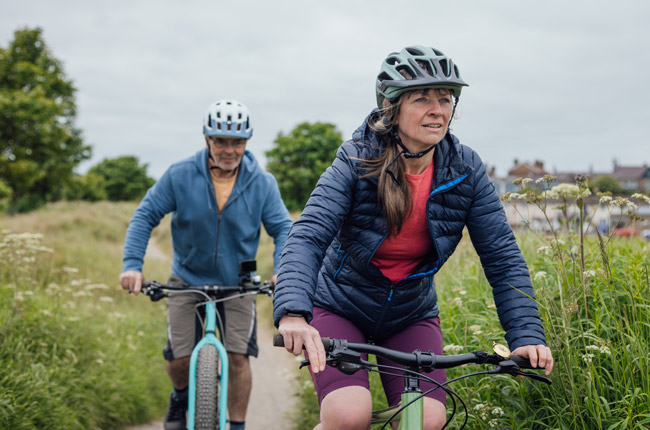We are delighted to have received this funding from WCRF. It will allow the SUNRISE Pilot study to be conducted in Botswana, Fiji, and Kenya, led by local research teams and mentored by a researcher from the region who has completed the study in their country.
Importantly, it will strengthen existing networks in the area of physical activity among children, in Africa and the Pacific Islands.
Prof Anthony Okely
Grant title: Assessing physical activity, sedentary behaviour, and weight status in young children in low- and middle-income countries: The SUNRISE Fiji, SUNRISE Botswana, and SUNRISE Kenya Pilot Studies
- This project is co-funded with Cancer Australia
Background
Physical activity is linked to a number of cancers. Healthy levels of physical activity, sedentary behaviour – including screen time – and low consumption of sugar-sweetened beverages are also associated with a healthier body composition.
Unhealthy levels of these behaviours in childhood increases the risk of these cancers in adulthood. Almost all evidence comes from high-income countries, with very little from low- and middle-income countries (LMICs), especially in sub-Saharan Africa (SSA) and the Pacific Islands.
The first step in the research process is to determine the feasibility and acceptability of assessing exposures associated with cancers in adulthood, among young children in these countries.
The SUNRISE Study was developed to fill this gap. Forty-three countries, 28 of which are LMICs, are participating in the study. Pilot data have been collected in 25 countries, but none yet from the Pacific Islands and only 3 from SSA (South Africa, Nigeria, and Zimbabwe).
Aims and objectives
The aim of the SUNRISE pilot study in Fiji, Botswana, and Kenya is to determine the feasibility and acceptability of the proposed methods for the SUNRISE study in each country.
How it will be done
In each country, 100 children (50 from urban and 50 from rural areas) aged 3.0 to 4.9 years, will be recruited from pre-schools. Overweight and obesity will be determined from body mass index using measurement of height andweight.
Physical activity, sedentary behaviour and sleep will be assessed using an accelerometer worn on a belt around the waist for 5 days.
Screen time and dietary outcomes will be assessed via parent questionnaire.
Exposure to air pollution will be measured at the pre-school using a commercial app (Plume).
Local data collectors will be recruited, trained, and supported through the data collection process by the study coordinating centre at the University of Wollongong, Australia (UOW).
Data will be collected on electronic tablets and uploaded to the secure cloud-based server at UOW.
Potential impact
This study will provide critical pilot data on the feasibility and acceptability of the proposed protocol in Fiji, Botswana and Kenya.
This will be used to apply for funding for the SUNRISE Main study in each country, which will make a valuable contribution to the literature in being the first large scale observational studies in this age group in sub-Saharan Africa and in the Pacific Islands.
Further, the study will build a network of researchers interested in 24-hour movement behaviour of young children and strengthen their capacity to conduct research in this field.
Grant publication
Zhiguang Zhang, Chalchisa Abdeta, Mohamed Souhaiel Chelly, Jesús del Pozo-Cruz, Catherine E Draper, Elina Engberg, Alex Florindo, Leyna Germana, Fazlollah Ghofranipour, Hongyan Guan, Amy Sau-Ching Ha, Asmaa El Hamdouchi, Hong K Tang, Mohammed Sorowar Hossain, Bayasgalan Jambaldorj, Dong Hoon Kim, Denise Koh, Anna Kontsevaya, Marie Löf, Himangi Lubree, Alejandra Jáuregui, Nyaradzai Munambah, Tawonga Mwase-Vuma, Aoko Oluwayomi, Bang Nguyen Pham, John J Reilly, Amanda E Staiano, Adang Suherman, Chiaki Tanaka, Stephen Tanui, Wei-Peng Teo, Mark S Tremblay, Ali Turab, Edin Užičanin , Sanne L C Veldman, E Kipling Webster, V Pujitha Wickramasinghe, Dyah Anantalia Widyastari, Anthony Okely, Geocultural differences in preschooler sleep profiles and family practices: an analysis of pooled data from 37 countries, Sleep, Volume 48, Issue 4, April 2025.



